March is always a busy month for me and this month is already looking to be the same thing. Whilst all is quiet on the tax front, for now, I am enjoying the calm before the tax storm to do client reviews and meet new people.
Financial updates March 2023
By Katriona Murray-Platon
This article is published on: 8th March 2023

One of the questions that came up this month was to do with wills and power of attorney. I have already written about wills in previous articles and whilst I do not undertake to help people write their will many people find it helpful to have a conversation with me before speaking to a notaire just to fully understand the implications for expats in France. So if you haven’t written a will and have any questions please do get in touch.
When you have assets in the UK and in France it is important to have a UK will and a French will and these should refer to and not repeal or revoke each other. Equally, if you have money paid into a UK account, over which you would need someone to have power of attorney, it is a good idea to have a UK power of attorney for your UK accounts and a French power of attorney for French accounts. Whilst a UK power of attorney is, under The Hague Convention, valid in France, and a French power of attorney is, if properly drafted, legalised and translated, valid in the UK, it would be easier for those close to you, whom you have appointed as your attorney, to have a registered power of attorney in France and in the UK. This will avoid lengthy administration and translation costs. It is best to consult a notaire to make sure that your French power of attorney is properly drafted and will, come the day, be accepted by French banks.

Hopefully you have already had a look at your tax page and declared your property, if not you have until 1st July 2023 to do this. Just to add to the information in last month’s Ezine, if you rent a property you will have to declare the amount of rent. This information will be used to calculate the rental value of the properties in your area and therefore the Taxe Foncière. However you don’t have to declare the rent just yet, you have until July 30 June 2025 until this becomes mandatory.

Finally, as 8th March is International Women’s Day, I wanted to share with you a photo of the lovely ladies who work for or with The Spectrum IFA Group. This photo was taken at our Gala event in Gleneagles. Before officially joining Spectrum I was encouraged to speak to some of the female advisers to find out their experience and it is because of their experience working in Spectrum that I decided to become a financial adviser.
Today I have the great privilege to work with this amazing group of women! In addition to this I have a large and growing number of female clients who I am pleased and proud to advise. Happy Women’s Day to all my female clients! If no one else is spoiling you, please do take the time to do something nice for yourself to celebrate International Women’s Day.
Financial updates February 2023
By Katriona Murray-Platon
This article is published on: 19th February 2023

The Taxe d’habitation has officially been scrapped for main residences in 2023. However in order to find out which properties may still be subject to taxe d’habitation (second homes, rentals etc) and the tax on vacant lodgings, the French tax authorities are requiring all those who own their own homes, second homes or rental properties to do a new declaration before 1st July 2023.
I’m so glad that February is here. After a long and cold January it’s so nice to see the bright sunshine and the mimosa flowers in my garden. That said January wasn’t too bad since I was able to get away for a lovely week in Gleneagles in Scotland for the Spectrum conference. It was a fun week of meeting with product providers, celebrating 20 years of Spectrum, highland games, walks in the Scottish countryside, and horse riding. If you thought the 2022 was a difficult year in the markets you were right. When I spoke to our product providers at our conference they told me that 2022 was one of the most difficult years they had ever experienced. Not only were equities down but the bond markets suffered too. No one can say what may happen in the future, but we can always hope, and already there are signs of improvement in 2023.
The Taxe d’habitation has officially been scrapped for main residences in 2023. However in order to find out which properties may still be subject to taxe d’habitation (second homes, rentals etc) and the tax on vacant lodgings, the French tax authorities are requiring all those who own their own homes, second homes or rental properties to do a new declaration before 1st July 2023. This includes properties held jointly, usufruitiers and properties within an SCI. This service is available on your online tax account from 1st January 2023 and the declaration has to be completed by 30th June 2023.
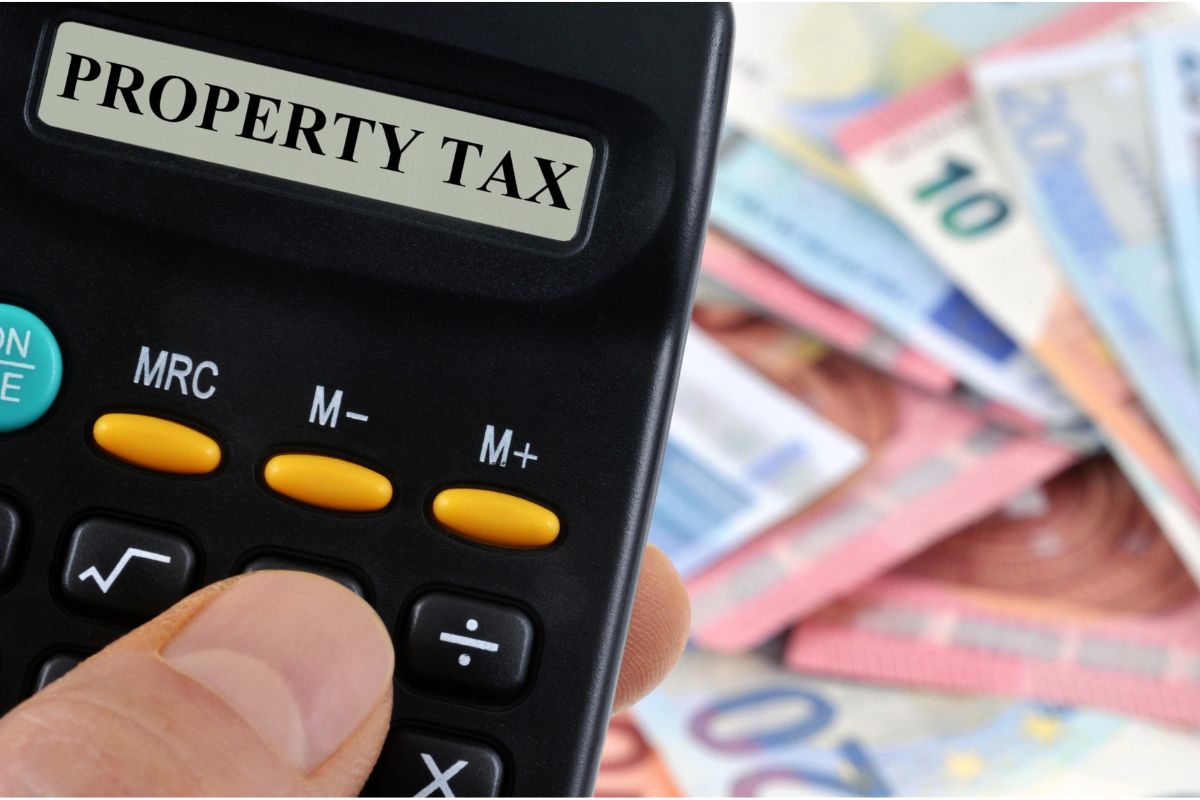
I had a go at doing this declaration on our own tax account and it is really quite easy to do. If you log into your account on the French tax website (impots.gouv.fr) , at the top there is a tab at the top with “Biens Immobilier”, you click on that and it will show all the properties you own, this will include any garages or out houses on your property. There should be a blue alert bubble saying how many declarations you have to do. You click on that and you will see exactly which declarations need to be done. Then you click on the option to declare your property. It will list the named occupants of the property, if nothing has changed then click on “aucun changement” (no changes) and then “valider” (approve) then it’s all done! The whole process took about 5 minutes, much less than the actual income tax return! In our case they listed our house and garage separately so I had two separate declarations to do for these. My husband is also a “nu proprietaire” of his mother’s house following the death of his father some 20 years ago. This house was listed but all we could do was consult the declaration, we didn’t need to do this declaration as his mother is the occupant of this property.
This declaration has to be done and there could be a fine of €150 per building for not declaring or for any mistakes or omissions on the declaration. If you have any questions you can contact the tax office via the messenger service by choosing the option “j’ai une question sur le service Biens Immobiliers” (I have a question on the property service).
The tax brackets have been officially increased by 5.4%. I wrote about the new tax brackets in my November Ezine but I will publish them again when we get closer to tax season. There is good news for parents with young children who go to a nanny or nursery, the amount of expenses allowed for the tax credit has finally been increased from €2300 to €3500 per child (making the total tax credit €1750 per child) and this will apply to your childcare expenses in 2022.

Further good news is that the savings accounts the Livret A and the LDDS, which did have a 2% interest rate have now been increased to 3%. The LEP now will have an interest rate of 6.1%. However bear in mind that the maximum deposit into the Livret A is €22950 and 3% of this is €689. The LDDS maximum balance is €12,000 at 3% this equals €360. Presuming you meet the income threshold, you can only put a maximum of €7700 which at a rate of €6.1% would earn you €470. So on €42650 of capital put into these savings account, you would earn €1519 fee from tax and social charges or 3.56%. Furthermore these amounts are paid yearly not monthly or quarterly so you will only receive these amounts on 1st January of next year.
Finally if you didn’t do any renovations or improvements to the energetic efficiency of your home in 2022 you can still do so in 2023, irrespective of your level of income. The renovation bonus or MaPrimeRenov’ has been extended until 31st December 2023 and the amount of financial assistance available has also been increased. To find out what you can do according to your income levels and what financial assistance you can receive, this document is useful: https://www.ecologie.gouv.fr/sites/default/files/19164_maPrimeRenov_DP_Janvier%202021.pdf It unfortunately dates from January 2021 so needs to be updated with the new amounts but it is still useful to give you a rough idea.
If you have any questions on any of the above or any other financial matters please do get in touch.
Tax credits in France
By Katriona Murray-Platon
This article is published on: 9th January 2023
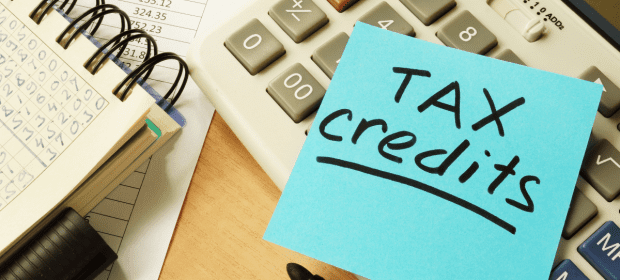
Happy New Year! I wish you all a very happy, healthy and prosperous year in 2023! I hope you all had a nice Christmas. We made it to Disneyland in spite of the train strikes in France and then onto the UK for our first British Christmas since 2018! It was good festive fun!
As from 15th January 2023, the tax office will pay you a 60% advance on some tax credits and tax reductions. These include the tax credits/reductions for charitable donations, home help costs and childcare costs. This will be 60% of the amount declared in 2022.
In my last Ezine, I mentioned the fuel allowance. Now, since 22 December 2022, there is an allowance of between 50 and 200 euros for those using logs or pellets to heat their homes. This is for people with less than 2260 euros income per month for a single person or 4750 euros for a couple with 2 children. You will need to request this payment by going to this website https://chequeenergie.gouv.fr/beneficiaire/eligibilite.

Since 1st January, receipts and bank card receipts will only be printed if you specifically request them. Also, from 1st January, companies (Entreprises individuels and SCIs) can do their own formalities online on formalites.entreprises.gouv.fr
No need to throw out your equipment when it breaks down. From 15 December 2022, it is even cheaper to repair your household appliances. There is a now a government allowance of between 10 and 45 euros off the price of repair depending on the type of appliance which works out to be around 20% of the repair costs. This only applies to appliances that are no longer covered by their warranty. For more details and to find an approved repair company go to: https://www.ecosystem.eco
Finally, in Spectrum news, from 16th to 20th January I shall be joining my colleagues for our annual conferences at the Gleneagles hotel in Scotland. As you know my name is Scottish and my father and his family are from Scotland, so I am very much looking forwards to going there and celebrating Spectrum’s 20th anniversary!
After five full years in the business I am beginning to get a sense of how variable each year can be. We have had three very strange years from covid and lockdown, to coming out of lockdown and getting vaccinations and then last year the war in Ukraine and inflation. Some analysts suggest that inflation may subside in 2023 but stop short of actually predicting this. Nobody has a crystal ball but I know what I do have that’s important which is my family, my friends and my clients. I’ve got you and you’ve got me, so whatever 2023 holds, I know that we can see it through together!
All the best for 2023.
Financial update in France
By Katriona Murray-Platon
This article is published on: 6th December 2022

The fuel allowance, tax returns & retirement planning
So here it is, Merry Christmas! I hope that you are having fun or planning to do so. There is much to organise before the end of the year, so before you get too wrapped up (excuse the pun) in Christmas preparations, I wanted to fill you in on some bits of news/financial points for the end of the year.
Given the increase in energy bills, the French government shall grant two one-off fuel allowances to help people pay their energy bills. Around 12 million homes will receive a one-off energy cheque. If you are eligible for the fuel allowance you should receive this €200 cheque automatically,. If your taxable income (revenu fiscal de référence par unité de consommation (RFR/UC)) is greater or equal to €10 800 € and less than €17 400, you will receive a cheque for €100. This cheque will be sent automatically from the end of December, you do not have to do anything to get it.
For the homes using “fioul domestique” : If you have already received the energy cheque for 2022 and you have used it to pay for your heating from a “fioul domestique” supplier you will automatically receive another cheque for €200 from November 2022
If you haven’t received this yet or you want to check whether you are available there is a website here https://chequefioul.asp-public.fr/ and through this you could receive a cheque for between €100 and €200 depending on your situation. If you haven’t received any cheques and you can’t make a request on this website you can contact them via this website: https://chequeenergie.gouv.fr
For those of you thinking of replacing your heating system with something more energy efficient, since the 29th October, the lower income households could receive €5000 of state aids (instead of €4000) and other households could get up to €4000 instead of €2500.
The annual social security ceiling (plafond annual de la Securité social) which is used to calculate various retirement contributions and the maximum allowed amount of benefits and French pensions has increased to €43,992. A monthly maximum of €3,666 will apply from 2023. This is the first time that this has increased in three years!
Please note that you have until 14th December to correct your 2021 tax return on your personal account on the impots.gouv.fr website. After this date you will have to correct it using a paper return.
The 15th December is the last day to pay the taxe d’habitation for second home owners in France. You have 5 extra days if you pay online or by direct debit.

If you are self-employed in France and earn over €5000 per annum, you will have to pay CFE. This is a local tax and is based on the rental value of the space you use for your business. If you don’t rent premises for your business, you have to pay the minimum CFE and this will be calculated on your annual turnover. It all depends on the rate applied by your local authority. The CFE must be paid by 15th December. You can also spread the payments out over the year.
Finally, if you are still actively working in France and are likely to do so for the next 10 or 15 years or more, and you pay tax at least in the 30% tax bracket, it may be worth opening a PER. If you already have a PER, and you have some money to invest in it, make sure you do this by the end of the tax year, ie 31st December 2022. If you are in the 30% tax bracket, 30% of the amount you invest in the PER can be deducted from your tax (41% if you are in this tax bracket) up to a maximum amount of 10% of your net taxable income from the previous year and up to a maximum amount of €32,419 in 2022.
2022 has been a brilliant year for me, my best so far, and I have been so happy to welcome lots of new clients.
I want to thank all of you for your time and attention to these newsletters and your kind comments. I especially want to thank all my clients for entrusting me to set up their investments. As always if you have any questions on the above or any other matters please do get in touch.
I shall be away from 18th to 28th December, first to Disneyland Paris and then to the UK for a good ol’ British Christmas with my family. I will be checking emails and can do phone calls if necessary.
I wish you all a very Happy Holiday season and look forwards to speaking to you next year!
Regards
Katey Murray
Partner
The Spectrum IFA Group
Mob: 06 81 61 78 44
Tel: 09 53 28 88 22

Children and taxes in France
By Katriona Murray-Platon
This article is published on: 4th November 2022

I am the proud mother of two wonderful boys. I love my children very much, but in addition to the joy they bring to my life, they also bring tax advantages. Admittedly the tax benefit is probably less than the overall expense of having children, but one must count one’s blessings!
Let’s take a couple earning €60,000 per annum.
The current tax brackets for 2022 are as follows:
| Income | Tax rate |
|---|---|
| Up to €10,225 | 0% |
| From €10,226 to €26,070 | 11% |
| From €26,071 to €74,545 | 30% |
| From €74,56 to €160,336 | 41% |
| Over €160,336 | 45% |
*These tranches are likely to increase by 5.4% in 2023.
If they have one child? their tax is reduced by half a tax part. Whereas alone they were in the 30% tax bracket, with one child their income is divided by 2.5 to €24,000 per person, which puts them into the 11% tax bracket. Their tax bill would be €3,788 instead of €5,844. The child has saved them €2,056 of tax. If they had a second child, and on the same income, their tax would be €3,226. The second child has therefore saved them €562 euros.
In addition to lowering your taxes, if your child is under six and goes to a child minder or nursery, 50% of these costs, up to a maximum of €2,300 per child may be deducted, so a maximum tax credit of €1,150 per child. This is a tax credit, so in our example above, the couple would pay only €926 in taxes.
After six years old and until they go to high school, as delightful as they are during this time, there are no tax advantages. From high school onwards there is a small tax reduction of €62 per child in high school, €153 per child in sixth form college and €183 per child in higher eduction (provided it is non-remunerated studies).

However when they are in their 20s and pursuing further education, this is the time to look at whether you are better to keep them in your tax household or take them out of your tax household and deduct the money you give them to pay for their studies, accommodation and food etc. I remember, when I was a tax lawyer, suggesting to a lady who had four sons, that she should remove her youngest son from her household – she looked a bit shocked! I meant of course that she should take her son out of her tax household, not kick him out of her actual household. It is quite common for children in France to remain at home during their university studies. The money given to an older child is deducted from the household income before it is subject to tax.
For an adult child to be considered part of your tax household, they must be under 21 on 1st January of the tax year (so 1st January 2022 for the tax return done in 2023), or be under 25 years old on 1st January 2022 and in higher/further eduction as at 1st January 2022 or 31st December 2022. There are also various conditions for children living with an adult relative.
So if we look at the couple above and both their children are at university. In 2021 they could have deducted up to €6,042 per child from their income which would have reduced their tax to €3,021 for the two of them without the children instead of €3,226 had the children been included on their tax return. For 2022, according to the Draft Finances Bill, this deduction is increased to €6,368 per child. For the full reduction to apply, you must be able to prove that the child needs this money, that they are unable to work or, if they have a student job, that they earn less than the minimum wage. You can deduct up to this amount but you have to be able to prove the expenses if so requested. If the child still lives with you, you can deduct their accommodation and food bills, up to €3,592, without need to justify these expenses.
Once your child is removed from your tax household, this will mean that they have to do their own tax return and declare the financial help that you are giving them. However, if they are earning less than the first tax bracket (€10,225 in 2021, €10,777 in 2022) then they won’t have any tax to pay.
For any questions on Children and taxes in France or on your general financial planning in France, please do get in touch via the form below:
Have you completed your tax returns in France?
By Katriona Murray-Platon
This article is published on: 3rd June 2022

- If you submitted it online and you have paid too much tax or exactly what is owed you will receive your statement between 25th July and 5th August.
- If you submitted by post and you have paid too much tax you will get your statement between 29th July and 31st August;
- If you submitted your tax return by post but you have paid exactly the right amount of tax you will get your statement between 2nd August and 31st August;
- If you submitted online but there is still tax to pay you will get your statement between 29th July and 5th August,
- If you submitted on paper and there is tax for you to pay you will get your statement between 5th August and 26th August.
If you have paid too much tax you should get the reimbursement around these periods. If you have tax to pay it should be taken from your bank account automatically. If not you have until 20th September to pay online. The money won’t be taken out of your account until 26th September. If you owe more than €300 tax, this amount will be taken in four payments between 26th September and 27th December 2022. If the amount due is less than or equal to €300 then this amount will be taken out in one payment on 26th September. Please remember that during September the 9th instalment of your monthly payment of income tax will be taken on 15th September, so you may have two tax payments in September (and in the following months if you owe more than €300).

A situation was brought to my attention about Capital Gains Tax on the main residence when you leave France. There was a court case in 2017 which reached the French Constitutional Court regarding the exemption from capital gains tax for the main residence. Whereas a French resident may vacate his/her main residence and has 12 months to sell it for it still to benefit from the main residence exemption, according to this decision if you are no longer French tax resident at the time of sale you lose this exemption on the capital gains.
Furthermore under Article 150 U, paragraph 2, line 2, of the French Tax Code the capital gains from the sale of a property are exempt from tax “for the sale of a property situated in France where the seller is an individual, not French resident, a national of a Member State of the European Union or another State which is part of the EEA having agreed with France an administrative assistance agreement to fight against fraud and tax evasion and provided that the person was tax resident in France continuously for at least two years at any period before the sale. The exemption mentioned in the first line of this second line applies only to one property per tax payer and up to €150,000 of net taxable capital gain, to sales carried out:
a) no later than 31st December of the fifth year following the year in which the seller ceased to be tax resident in France,
b) with no time restrictions, when the property is freely available to the seller at least since 1st January of the year before the sale”.
It is this section of the French Tax Code which could, according to some Notaires, no longer apply to British citizens selling their French properties and returning to the UK since Britain is no longer part of the EU. I have spoken to two Notaires about this and neither seemed to be bothered about it. But Notaires can take different views on things. So if you (or someone you know) are planning to sell what is currently your main residence in France and move back to the UK make sure you clarify exactly what you have to do with your local Notaire and do not move back to the UK and establish UK tax residency before the sale is complete.
After a busy month of May with many people contacting me with tax questions, I am looking forward to a more normal month of June and getting out in the sunny weather to see clients. So if you would like to arrange an appointment or need to speak to me about any matters please do get in touch!
Inheritance issues in France
By Katriona Murray-Platon
This article is published on: 11th October 2021
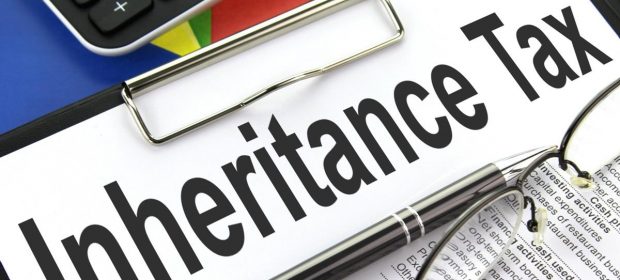
As many of you know, in 2015 the European Succession Regulation came into force. Sometimes known as ‘Brussels 1V’, this allowed you, if you deemed it suitable, to elect for the law of your nationality to apply to your Will in France. The principal benefit of this election would be to allow you to leave your property to your spouse for example, and then pass it on to your children after the second death. Another useful application would be when relationships have broken down and you have decided that one or more of your children should be excluded from benefitting from your estate. In effect, you claim the right to leave your assets to whomever you wish.
Now, in a quite frankly bizarre move, the French government has decided to move against European law. At the end of July this year a bill was passed making changes to article 913 of the Civil Code. Here is the relevant wording, with a translation ‘a la Google’.
Lorsque le défunt ou au moins l’un de ses enfants est, au moment de son décès, ressortissant d’un État membre de l’Union européenne ou y réside habituellement et que le droit étranger applicable à la succession ne permet aucun mécanisme réservé à la protection des enfants, chaque enfant ou ses héritiers ou successeurs amoureux peut bénéficier d’un prélèvement compensatoire sur les biens existants situés en France le jour de la sa mort, afin d’être rétablie dans les droits réservés qui leur sont accordés par Français loi, dans les limites de celui-ci.
Where the deceased or at least one of his children is, at the time of death, a national of a Member State of the European Union or is ordinarily resident there and where the foreign law applicable to the succession does not allow any reserved mechanism to protect children, each child or his heirs or successors may make a claim on existing property situated in France on the day of death, so as to be restored in the reserved rights granted to them by French law, within the limits thereof.

There is little scope for doubt that this directly contravenes European law. It has already been challenged once but was passed unchanged. It is likely that there will be a stream of legal challenges that could take several years to conclude. This is France after all. One silver lining is that the new decree will only come into force on the 1st November this year, and will only relate to deaths that occur after that date. For those of us who were contemplating this move, or have already employed it, this will mean that there could be years of uncertainty, and many people are not going to be able to leave their assets on death as they would wish to.
One key aspect of this change is that it can only be applied to assets situated in France which, in some cases, may affect succession plans for the principal residence and possibly French rental properties if no other planning has been put in place. There are tried and tested legal mechanisms in France for establishing property ownership that can better protect the survivor such as the ‘en tontine’ clause (only at the point of purchase), the marriage contract of ‘communauté universelle avec attribution au dernier survivant’, the ‘pacte de famille’ and the ‘donation entre époux’ to name a few. If you have any concerns about how this new change may impact your existing Wills and estate planning, I recommend that you speak to a Notaire to discuss your options.
French Tax declarations in June – Trusts & Wealth Tax
By Katriona Murray-Platon
This article is published on: 1st June 2021

Oh what a month of May! So despite the old adage of being able to do as we please, the weather clearly didn’t get the memo! May has been a whirlwind of enquiries and questions on taxes with lots of people requesting the Spectrum Tax Guide. Hopefully, by now most of you have filed your tax returns, but those living in department numbers 55 to 976 as at 1st January, still have a few more days, until 8th June to file theirs. Also, if you have appointed an accountant to do your tax return, they have a special extended deadline until the end of June to file all remaining returns.
If you had a go at your own tax return, but would prefer to hand it over to a professional either for future returns or to check that what you filed this year was correct, it would be best to try to contact them after the end of June. If you think you made a mistake on your tax return, you have until the end of the year to correct it. You will soon know if there is something not quite right with what you have declared when you receive your statement at the end of August/beginning of September. At that point, if you are quick you can submit an amended return before the payment deadline; otherwise you may have to pay the tax payable on the original statement whilst awaiting the amended return to be processed and a new tax statement to be issued, with any tax reductions if applicable.

This month, my family and I set off for our first mini-break since the lockdown in March last year. I have to say we were a bit nervous venturing out of our house, preparing the suitcases and worrying that we hadn’t forgotten anything. We stayed in the lovely village of Coux-et-Bigaroque, about 45 minutes east of Bergerac. In spite of the weather we were able to take the children to the Perigord Aquarium, the Caves of Grand Roc and the Chateau of Milande, formerly owned by the singer and entertainer Josephine Baker. Whilst I love visiting this chateau and the birds of prey show in the grounds, it always makes me feel a bit sad. It is an example of how someone with such talent and a kind heart didn’t have the right advisers to help her make the best financial decisions.
In June there is another tax deadline that still needs to be considered:
Which is that all Trust declarations need to be declared by 15th June. I wrote an article many years ago which you can find HERE
There have been no significant changes to the treatment of trusts since the law of wealth tax was amended to include only immovable property. A trust can be recognised in France and perfectly valid in France provided that it doesn’t go against public policy (ordre public) and in particular the rights of heirs under French law. Income from a trust is subject to income tax depending on the nature of the income (rent from an apartment or capital income) and can be subject to tax credits under a double tax convention. Trusts (excluding charity trusts and pension trusts) must be declared in France if any of the settlor, trustee or beneficiary are French residents or if the trust contains an asset situated in France on 1st January. According to a press release by the Ministry of Finance on 5 July 2016, 16,000 entities had been identified and notified as trusts to the French administration.
Another change this year is that the Wealth Tax declaration which normally had to be submitted by middle of June if you have assets over a value of €1,3million, this year has to be submitted at the same time as your tax returns by way of a tax form called 2042-IFI. Those of you resident in departments numbered 55 and above still have until 8th June to submit. If you French tax residents who came to live in France, after having spent 5 years abroad, you are not taxable on your non-French assets until 5 years after you became resident. Non-residents also have to declare if their French assets are over €1.3million.
Tax in France – what needs to be declared
By Katriona Murray-Platon
This article is published on: 6th May 2021
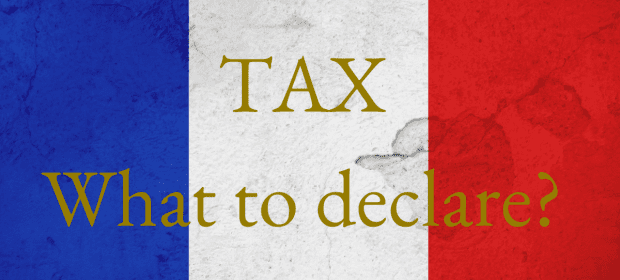
No-one needs reminding that 2020 was a year like no other. Our lives were changed in many ways and this had an effect on our finances. Luckily there were many government schemes and initiatives to help people overcome the financial difficulties suffered in lockdown and because of the health restrictions. However now that 2021 tax season is upon us, what now needs to be declared?
Salaried workers bonus is tax exempt
Last year some salaried workers may have received a consumer bonus which is exempt from tax up to €1000 (or €2000 if there is an interest agreement/“accord d’intéressement”) Public workers and health workers also received a bonus which is exempt up to €1500.
Overtime hours are usually exempt up to €5000 per year, however the exemption threshold has been increased to €7500 for those hours carried out between the beginning of lockdown (16th March 2020) and the last day of the emergency health state set at 10th July 2020. This applies to salaried workers in the public and private sector as well as those under special regimes. All exempt overtime must still be declared on the tax form and will be included in the tax income reference rate for the tax household.
The Ministry for Economy and Public Accounts has announced that the payments paid by companies to their employees to cover the costs of working from home are exempt from tax up to €2.50 per day worked at home and up to €50 per month for 20 days and €550 per year.
Salaried workers who choose to deduct their actual costs rather than applying the flat 10% abatement on their salaries, can still choose this options without supplying supporting documents however these deductions may not be so beneficial depending on your level of salary. As always it is best looking at both options and seeing which works best for you.
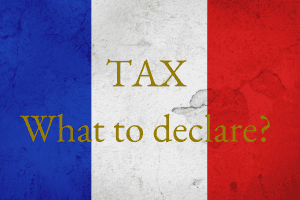
Charitable gifts in 2020
Although things were hard for many people last year, it was also a year, more than ever to help those less fortunate. Gifts given in 2020 to humanitarian organisations and victims of domestic violence result
in a tax credit of 75% of the amounts donated up to a maximum threshold of donations of €1000. Over this threshold and for donations given to other organisations (including political parties), the rules haven’t changed, the tax reduction is 66% for such donations and he maximum threshold is 20% of the taxable income. The excess can be carried over over the next 5 years and results in a tax reduction under the same conditions.
Independent workers
Companies and individual tradespeople benefitted a lot from the government help last year. Fortunately the financial help granted by the solidarity fund to companies most affected by the health crisis, the exceptional financial help to independents (CPSTI RCI COVID 19) and those paid by the additional pension schemes of independent professionals and lawyers (CNAVPL and CNBF) are all exempt from income tax. The other help from public or private entities are taxable if there is no specific legal provision that exempting them otherwise.
Auto-entrepreneurs and micro-entrepreneurs who were exempt from paying part of their social charges must include in their tax declaration the turnover figure that was not declared to URSSAF because of this exemption.
Home help tax credit – changes to the conditions
The home help services normally give rise to a tax credit of 50% of the amount paid out. These expenses are deductible up to €12,000 (plus €1500 per dependent and person over 65 years, up to a maximum of €15,000). However in 2020, during lockdown some of these services had to be temporarily suspended or even cancelled, or in certain circumstances could be carried out online.
If you employed someone carry out a service in your home, you may have benefitted from the partial compensation for the hours that your employee was unable to carry out during lockdown. These compensated hours cannot benefit from the normal tax credit and if you nonetheless paid your employee their salary even though they couldn’t actually work, this cannot be used for the tax credit (it is classified as a solidarity donation).
Exceptionally, some services, which in principle took place in the home, but were in fact carried out remotely because of the health crisis, still give rise to the tax credit under the same conditions as other home help services. These include online additional schooling support lessons and individual lessons (gym, music etc) given to adults or children. The Ministry of Economy and Finance has specified that these services “must have involved a minimum amount of effective interaction, implying a physical presence of the person supplying the service at one end of the screen/telephone line and the be specifically given to the person paying for the service at home”. This therefore does not include online group lessons or watching pre-recorded videos online. This derogation applies throughout the time that people were not allowed to go out either because of lockdown or curfew.
Professional landlords who waived rent
If you are a professional landlord and you waived the rent of your tenants for a commercial or professional premises rented to a company that was difficulty because of the Covid crisis, you can still deduct your expenses (ownership expenses and mortgage interest). You also can carry forward your rental loss, up to €10,700, on your overall income. The additional loss – and the part of the deficit arising from the mortgage interest – will be carried forward and deducted from your income over the following 10 years.
There is also a specific tax credit if you definitively waived rent for November 2020 only (not any of the other months in 2020). The tenant company must have employed at least 5000 employees and have been closed to the public (even if they were able to do click and collect) or to have carried out its business in one of the sectors of business that were eligible for the solidarity fund as listed in Decree no 202-371 of 30.03.2020 (hotels, travel industry for example).
Furthermore the tenant company must not have been in financial difficulty on 31st December 2019 or have been under court ordered administration proceedings as at 1st March 2020. The tax credit is equal to half of the unpaid rent if the company employed less than 250 employees. If the number of employees was between 250 and 5000, the 50% is calculated on the two thirds of the rent. If the tenant company is managed by an ascendent, descendant or member of your tax household, you must justify the cash flow problems in order to deduct your expenses and get the tax credit.
Voluntary retirement contributions
You can deduct from your total income the sums paid into a retirement scheme such as PER, PERP or Préfon up to the normal deduction limits. If you have opened a PER for your child (whether a minor or of age but still within your tax household) you can deduct the payments even if they payments were paid by your own parents (the child’s grandparents) Children have their own deduction amounts even though it is not necessarily stated on the tax return.
French Tax Returns 2021
By Katriona Murray-Platon
This article is published on: 3rd May 2021

The right to make mistakes
There is an expression in France which goes “In May, do what pleases you” (en mai fait ce qui te plait). This refers to the fact that any frosty weather will have gone by the end of April and you can go out and enjoy the warm weather. However, there is something very important that needs to be done before we can go out and enjoy ourselves and that’s the tax return. Although the tax return is available online in early April, personally I’m not psychologically ready to deal with my tax return until May and then not even that much! As a former tax adviser I used to do around 200-300 returns for clients between March and June, but I have to admit that doing my own tax return is quite a task and requires preparation. It’s a bit like deciding to do a full Sunday roast; you need to make sure you have all the ingredients because you don’t want to get the meat in the oven and discover that you’ve not bought the gravy!
If you think French tax is daunting, you’re not alone. The French themselves find their tax returns difficult and the French authorities know that it isn’t easy. Moves have been made in recent years to simplify the system with information being automatically declared by employers and banks so that it appears in the tax return, but there is still information that needs to be checked and other information (like expenses or tax credits) that must be included to calculate the tax correctly.
The preferred method of declaration is online, or even through an app on your smartphone or tablet. However, whilst the French authorities would prefer an online declaration, if this is your first year declaring or you really can’t do it online, you can submit a paper return.
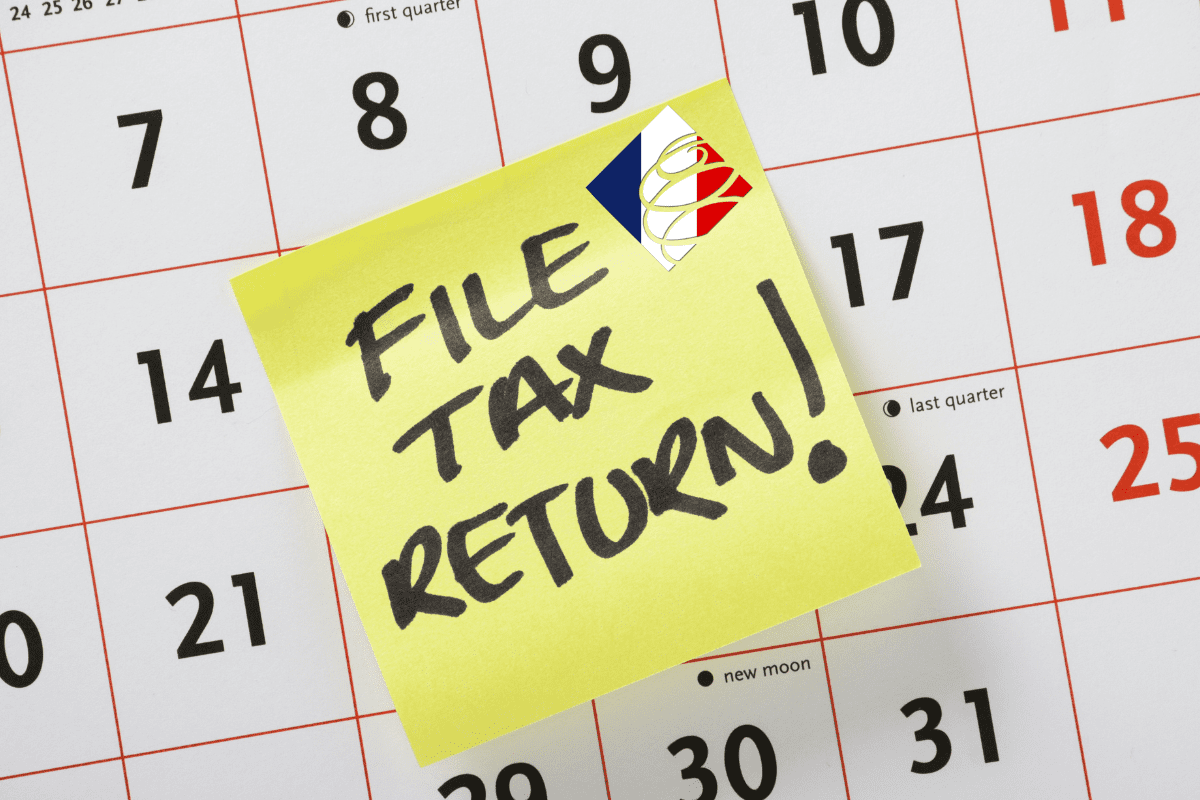
The deadline for a paper French Tax Returns 2021 declaration is 20th May this year whereas the online deadlines are:
- 26th May for departments 1 to 19 and for non-residents
- 1st June for department 20 to 54
- 8th June for departments 55 to 976
These dates relate to the place where you were resident on 1st January 2021.
Even though the French tax authorities are trying to make the system simpler, even introducing an “automatic declaration” this year for those 12 million French tax payers with income and expenses already known to the authorities, the Finance Minister knows that people still make mistakes. The most common of which is failing to declare a child who is in college, lycee or university. Another is that if you opted for the marginal rate on your interest and dividends before, the option is carried over and the box 2OP already ticked on the declaration but an alert message will appear if this regime is not the most favourable. The ten most common errors can be found on the website oups.gouv.fr. Costs for childcare for children under 6 years old, confusion over who includes the child when the parents are separated or divorced and tax deductions for charitable gifts are among the most frequent mistakes.
Since a law introduced in 2018 to help improve the relationship between the administration and the general public, you now have official permission to make mistakes in your declaration. You are presumed to be declaring in good faith and you have the right to make a mistake when making your declarations without being penalised from the outset. Any individual or company can amend, either voluntarily or if requested by the authorities, their mistake if it has been committed in good faith and for the first time. This doesn’t cover fraudsters or repeat offenders and whilst it means you can avoid a fine you will still have to pay any extra taxes that are due. Tax advisers and accountants are mad busy at the moment, so if you haven’t already found one to do your tax return they will be very reluctant to take you on now. However, some tax offices may allow you to make an appointment and bring your papers and information to do your tax return with them. You have an official right to make a mistake and as long as you submit something before the deadline, you can then correct it later.
The first time I did a roast dinner as a student I had to call my grandma (a former professional cook) and I am happy to say no one got food poisoning! Like many things in life, these things can seem daunting to begin with, but if you do your best and follow the instructions, you will be proud of yourself once it is done and then you can go out and enjoy the sunshine with a large glass of wine!

